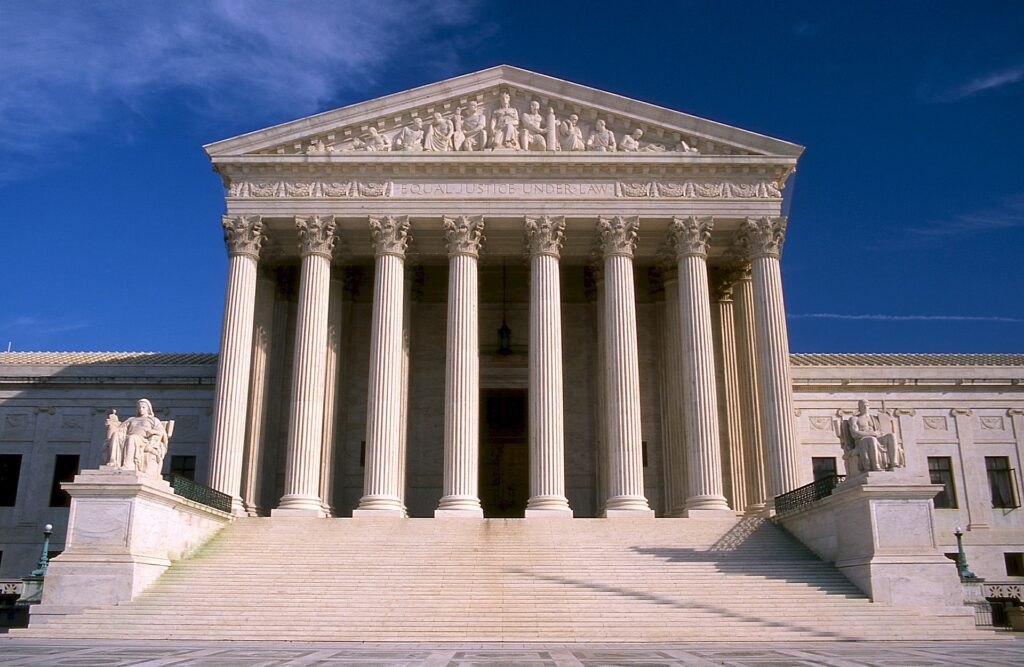The main legal concerns for the LGBTQ community today
With Amy Coney Barrett’s appointment to the U.S. Supreme Court, the LGBTQ community faces the fact that our hard-won rights could be rolled back. We asked top legal expert Victoria T. Ferrara for her advice.
With Justice Barrett’s appointment to the U.S. Supreme Court (SCOTUS), the biggest fear facing the LGBTQ community right now is that the conservative majority will eventually hear a case about marriage equality (or religious liberty as it relates to marriage equality procedures).
Their ruling on such a case could potentially overturn the landmark precedent established by Obergefell v. Hodges, a 2015 case stating that the right to marry is a fundamental right guaranteed to all – including same-sex couples – by the U.S. Constitution, specifically the Due Process Clause and the Equal Protection Clause of the Fourteenth Amendment.

The fear is not without merit. Recently, before the appointment of Barrett, Justices Alito and Thomas expressed their view that Obergefell should be overruled in order to protect the religious liberty of people such as Kim Davis, the Kentucky county clerk who refused to grant marriage licenses to same-sex couples because, she claimed, that to do so would cause her to violate tenets of her religion.

It is no secret that the conservative justices would like to overrule Obergefell. Obergefell was passed by a 5-4 margin. Justices Roberts, Alito, Thomas and Scalia dissented. There were various dissenting arguments. Roberts and Scalia argued that the SCOTUS, by ruling in favor of marriage equality, was bypassing the legislative branch of government, i.e., that the elected officials in legislatures were the ones who should be passing laws to allow same-sex marriages. Unfortunately, this would lead to a hodge-podge of laws. Some states would pass laws in favor of marriage equality and some states would not, leaving all same-sex marriages vulnerable to attack or non-recognition in States with no marriage equality laws.
Regarding marriage, if marriage is a fundamental right, as the U.S. Supreme Court stated in the Obergefell case, then married couples should enjoy stability and security in their marriages and in their family lives.
But to have to live with uncertainty and with questions about what might be done to undermine this stability creates stress and strain, fear and frustration in the LGBTQ community.
In addition, LGBTQ parents must pay attention to legal procedures they can use to fortify their legal rights and their children’s family stability and security. Generally, when parents are married, both parents are the presumed parents of a child. For example, in a lesbian couple, the birth mother is the legal parent and the birth mother’s wife is the presumed legal parent and her name would also go on the birth certificate.
For gay fathers, the genetic parent would easily become the legal parent and the non-genetic parent would also become a legal parent through a pre-birth order of parentage, for example, in the case of gestational surrogacy. But LGBTQ couples must address the issue that the “presumption” of legal parentage by way of their marriages, must be fortified by the adoption process.
With SCOTUS ruling in favor of marriage equality, gay and lesbian parents became a bit less concerned with the need for additional legal step of the co-parent adoption even though lawyers continued to suggest it is an important legal step. However, now, the need for the co-parent adoption has taken on a front and center position fueled by the fear of losing the fundamental right to marry.

Further, children of LGBTQ parents should be able to be secure in their families. It is clearly in the best interests of the children (a legal standard in state courts when it comes to family law issues) that the marriages of their parents remain secure and that their families are not faced with the prospect of being dismantled by a conservative SCOTUS.
Although overturning the Obergefell decision may not realistically occur, there is a pressing legal concern that there will be a consistent effort to erode hard-won gay rights by way of a path toward discrimination through religious liberty cases. In the 2017 case of Masterpiece Cakeshop Ltd. v. Colorado Civil Rights Commission. the U.S. Supreme Court essentially allowed business owners to discriminate against LGBTQ customers based on the owners’ religious beliefs that are anti-gay.

LGBTQ citizens must become informed about the issues and not allow their fears to immobilize them. Instead, we must mobilize and be vocal, know the issues, educate those around us, and support the amazing organizations such as LAMBDA Legal, GLAD, The Human Rights Campaign and others, working tirelessly to protect LGBTQ rights.
About Victoria T. Ferrara
Attorney Victoria Ferrara has practiced in the courts of Connecticut and New York for the past thirty years. Victoria has remained on the cutting edge of assisted reproductive law issues, representing clients in LGBT-related law proceedings and surrogacy arrangements. One of her greatest achievements is the landmark decision of Raftopol v. Ramey, a Supreme Court case that established a new way to determine legal parentage in Connecticut. Victoria has published numerous articles and lectured and presented as a panelist in surrogacy conferences throughout the world.






